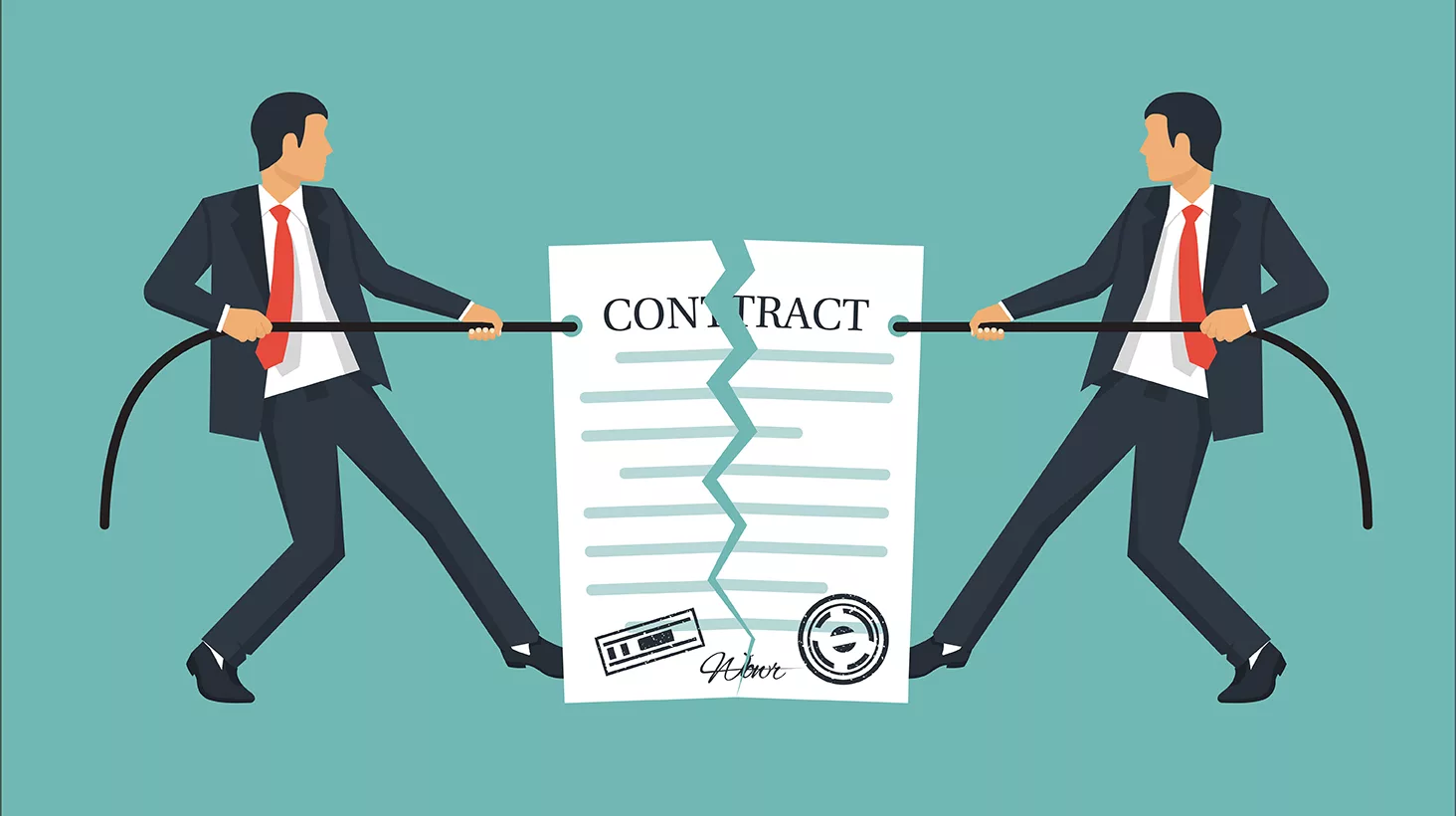The intricate world of agreements between parties can often lead to complex scenarios. When expectations are not met, the resulting tensions can shape the relationship between those involved. Navigating these circumstances requires a clear grasp of the effects that arise when obligations are not fulfilled.
A violation of established terms can create significant repercussions. Individuals or entities may face legal challenges, financial losses, and reputational damage. Understanding these outcomes is essential for anyone engaged in formal arrangements, as it highlights the importance of diligence in upholding commitments.
Furthermore, it is crucial to recognize the various remedies available to those adversely impacted. Legal recourse may take different forms, ranging from financial restitution to specific performance. Each option presents its own set of complexities and potential outcomes, which can influence future interactions and the overall landscape of agreements.
Types of Contractual Breaches Explained
Every agreement laid out between parties carries the expectation of fulfillment. However, situations can arise where one party fails to meet the established terms. This discussion highlights the various forms that such failures can take, providing insight into their characteristics and potential consequences.
Classification of Failures
These failings can typically be categorized into several types, each with unique implications:
- Minor Default: A slight deviation from the agreed terms that does not significantly impact the agreement’s overall purpose.
- Material Default: A substantial violation that undermines the core objectives of the agreement, often allowing the other party to seek remedies.
- Fundamental Default: A severe breach that negates the contract altogether, leading to termination and potential claims for damages.
Intentional vs. Unintentional Failures
Beyond classification, breaches can also be viewed through the lens of intent:
- Intentional Violation: Occurs when one party deliberately refuses to perform their obligations.
- Unintentional Violation: Results from unforeseen circumstances or mistakes, where the party did not intend to fail in their duties.
Recognizing these distinctions is vital for affected parties, as it shapes their responses and legal options in the aftermath of unmet obligations.
Common Causes of Breach Events
There are various factors that can lead to a failure in fulfilling obligations stated in an agreement. Recognizing these triggers is vital for both parties involved in any arrangement, as it helps in preventing potential disputes and maintaining a healthy relationship. The following are some prevalent reasons for such occurrences:
External Influences
- Market Fluctuations: Changes in the economy or industry conditions can affect the ability of one party to meet their responsibilities.
- Natural Disasters: Events such as hurricanes, earthquakes, or floods may hinder both parties’ capacity to deliver on their promises.
- Regulatory Changes: New laws or regulations can impose unexpected challenges on compliance with established terms.
Internal Factors
- Poor Communication: Misunderstandings or lack of clear dialogue can lead to misaligned expectations and unmet duties.
- Financial Difficulties: Economic strains or insolvency may restrict a party’s ability to perform as agreed upon.
- Human Error: Mistakes made in the execution of duties, whether intentional or accidental, can result in a lapse of fulfillment.
Legal Consequences of Contract Violation
When a party fails to uphold their obligations as outlined in a mutual agreement, several legal ramifications can arise. These outcomes can significantly impact the involved parties, leading to potential financial losses, reputational damage, and the need for legal intervention. Understanding these consequences is crucial for anyone engaged in agreements, whether personal or professional.
Main Legal Ramifications
- Damages: In most cases, the affected party may seek compensation for losses incurred due to non-compliance. This can be categorized into various types:
- Compensatory Damages: Designed to cover the actual loss suffered.
- Consequential Damages: These arise from additional losses related to the violation.
- Punitive Damages: Intended to punish the violating party and deter similar behavior in the future.
- Specific Performance: Courts might order the violating party to fulfill their obligations as initially agreed upon, particularly in cases involving unique goods or services.
- Rescission: This allows the non-breaching party to terminate the agreement, freeing them from any further obligations while seeking restitution for any losses incurred.
Additional Legal Considerations
- Injunctions: Courts may issue orders preventing parties from taking specific actions that would further violate the agreement.
- Legal Fees: The non-breaching party may also be entitled to recover attorney fees required to address the violation.
- Reputational Effects: Violations can lead to loss of trust and goodwill, affecting future dealings.
In summary, the ramifications of failing to honor an agreement can be severe and multifaceted, encompassing financial, legal, and reputational aspects. It is vital for parties to recognize their commitments and the potential fallout of non-compliance.
Remedies for Breach of Contract
When an agreement is violated, the injured party is often left seeking ways to rectify the situation. Various solutions exist to address the consequences of such violations, aimed at restoring balance and providing relief. These remedies can serve to compensate the affected individual, enforce specific obligations, or terminate the failed agreement altogether, depending on the circumstances surrounding the case.
One common approach involves monetary compensation, where the party at fault provides financial restitution for losses incurred due to their actions. This approach seeks to place the harmed individual in a position similar to what they would have experienced had the agreement been honored. Alternatively, specific performance may be pursued, compelling the guilty party to fulfill their obligations as initially promised. This remedy is particularly applicable in situations involving unique goods or services where monetary compensation alone cannot suffice.
Another option is rescission, which effectively nullifies the agreement, releasing all parties from their duties. This remedy is typically invoked when the violation negates the very essence of the initial arrangement, rendering it unworkable. Additionally, parties may seek restitution to recover any benefits conferred during the course of the agreement, ensuring that no unjust enrichment occurs as a result of the violation.
Ultimately, the choice of remedy is influenced by the specific details of the situation, including the nature of the violation, the desires of the affected party, and the overall context of the agreement. Each remedy serves a distinct purpose and can significantly impact the resolving of disputes that arise from failed obligations.
Preventive Measures to Avoid Breaches
Effective strategies are essential for minimizing risks related to mutual agreements. By establishing clear communication, setting achievable expectations, and fostering a culture of accountability, parties can significantly reduce the likelihood of conflicts arising from unmet obligations. Proactive efforts can lead to smoother collaborations and strengthened relationships.
One of the fundamental steps is crafting precise documentation. Clear terms and conditions eliminate ambiguities that can lead to misunderstandings. Regular updates and revisions ensure that all parties are aligned with any amendments or changes in circumstances.
Another vital measure involves maintaining open lines of communication. Regular check-ins and discussions help to address potential issues promptly. Encouraging feedback can facilitate a better understanding of each party’s concerns and needs, fostering a collaborative environment.
Training and educating all stakeholders about their roles and responsibilities also play a crucial part in preventing complications. Increased awareness cultivates a sense of ownership and diligence, ensuring that everyone is committed to upholding their commitments.
Implementing effective dispute resolution mechanisms can further safeguard against potential pitfalls. Establishing protocols for addressing grievances swiftly can mitigate escalations and maintain professional integrity, promoting a more harmonious working relationship.
Real-Life Examples and Case Studies
This section delves into notable instances where obligations have not been fulfilled, highlighting the consequences faced by the parties involved. By examining these real-world scenarios, we can glean valuable insights into the intricacies of compliance and the repercussions of failing to meet commitments.
Here are some significant examples that illustrate different facets of this topic:
- Construction Delays:
A construction firm was contracted to deliver a new office building within a twelve-month timeframe. Due to unforeseen supply chain issues, the project was delayed by six months. As a result, the client incurred additional costs for temporary office space, leading to a legal dispute. - Software Development Failures:
A tech company hired a software development agency to create a custom application. The agency failed to meet key milestones, delivering a product that was buggy and underperforming. The tech company sought remediation, resulting in financial loss for the agency and the termination of the partnership. - Service Agreement Violations:
A catering company signed an agreement to provide meals for a large corporate event. When they delivered fewer dishes than promised and failed to cater to dietary restrictions, the client was forced to seek alternative solutions at the last minute, leading to a significant breach of trust and subsequent legal actions.
These examples underline the importance of fulfilling promises in various industries. The outcomes not only affect the immediate parties but can also have broader repercussions, highlighting the need for vigilance and clarity in all dealings.
Q&A: How does a breach of contract occur
What constitutes a breach of contract?
A breach of contract occurs when one party fails to fulfill their obligations as outlined in a contractual agreement. This could include not performing a task specified in the contract, failing to deliver goods or services on time, or not paying for goods or services rendered. Breaches can be classified as minor or material; a minor breach involves a slight deviation from the contract’s terms, while a material breach significantly undermines the contract’s purpose, allowing the non-breaching party to seek legal remedies.
What are the legal implications of a breach of contract?
The legal implications of a breach of contract can be serious. The non-breaching party may seek damages in court, which can be compensatory (to cover the loss incurred) or punitive (to punish the breaching party). They may also seek specific performance, which compels the breaching party to fulfill their contract obligations. Additionally, the breaching party might face reputational damage, difficulty in securing future contracts, or even legal fees associated with the dispute. The specifics can vary depending on the jurisdiction and the nature of the breach.
How can parties prevent a breach of contract?
Preventing a breach of contract requires careful planning and communication before and during the contractual relationship. Parties should ensure that the terms of the contract are clear, specific, and mutually agreed upon. Regular communication can help clarify expectations and address potential issues before they escalate. It’s also advisable to include clauses in the contract that outline remedies for breaches or define how disputes will be resolved, such as mediation or arbitration. Finally, each party should be diligent in fulfilling their obligations and proactive in addressing any difficulties they encounter.
What are the remedies available for a breach of contract?
There are several remedies available for a breach of contract. The most common is monetary damages, which can be calculated to compensate the non-breaching party for their losses. This includes expectation damages, which aim to cover the benefit the non-breaching party expected to receive. Specific performance may also be sought, requiring the breaching party to perform their contractual obligations. In some instances, rescission, which cancels the contract, or restitution, requiring the breaching party to return any benefits unjustly gained, may be appropriate. The type of remedy pursued often depends on the circumstances of the breach and the specific terms of the contract.
Can a breach of contract ever be justified?
Yes, there are circumstances where a breach of contract may be justified. These include instances of impossibility, where unforeseen events make contract performance impossible (such as natural disasters or changes in law), and mutual consent, where both parties agree to modify or terminate the contract. Additionally, minor breaches may not always warrant legal action, especially if the non-breaching party has not suffered significant damages or if there is a clear intent to resolve the issue. Ultimately, whether a breach can be justified will depend on the specifics of the situation and the reasoning behind the party’s actions.
What are the common causes of a breach of contract?
A breach of contract can occur for various reasons, including but not limited to failure to perform obligations, delays in delivery, and non-payment for services rendered. Other causes might include misunderstandings regarding contract terms, inability to fulfill contractual duties due to unforeseen circumstances (like illness or bankruptcy), or intentional disregard for the agreement. It’s crucial for parties entering into a contract to clearly understand their responsibilities and the consequences of not fulfilling them, as this knowledge helps in avoiding unintentional breaches and conflicts.
What is an anticipatory breach of contract, and how does it differ from an actual breach of contract?
An anticipatory breach of contract occurs when one party to the contract indicates, either through words or actions, that they will not fulfill their obligations before the performance is due. This type of breach allows the other party to take legal action or terminate the contract even before the breach happens. In contrast, an actual breach of contract happens when one party fails to perform their obligations by the agreed-upon time, resulting in a failure to meet the terms of the contract.
What are the common remedies for a breach of contract?
Common remedies for a breach of contract include suing for damages, contract termination, and seeking specific performance. If a material breach of contract occurs, the injured party may sue for compensatory damages or punitive damages, depending on the severity of the breach. In some cases, the contract may be terminated, allowing the injured party to walk away from their obligations. Additionally, specific performance may be sought, requiring the breaching party to fulfill their part of the contract.
What is a material breach of contract, and how is it different from a minor breach of contract?
A material breach of contract is a serious violation that goes to the heart of the contract, affecting the outcome and purpose of the agreement. This type of breach allows the injured party to terminate the contract and sue for damages. On the other hand, a minor breach of contract, or immaterial breach, occurs when the breach is small and does not significantly affect the overall performance of the contract. In this case, the contract may still be enforced, and the injured party may only seek compensation for the specific loss incurred.
What are the potential consequences when a party breaches a contract?
When a party breaches a contract, the consequences can include legal action, termination of the contract, and financial liability for damages. If the breach is material, the injured party may sue for breach of contract and seek compensatory damages or request specific performance. Depending on the breach, it could also result in the termination of the contract and the release of the injured party from their obligations. In some cases, a breach of the contract can also harm business relationships and reputations.
How does contract management software help prevent breaches of contract?
Contract management software helps prevent breaches of contract by streamlining contract creation, tracking key deadlines, and ensuring compliance with contract terms. This software provides centralized contract storage, making it easier for parties to a contract to monitor performance and obligations under the agreement. It also sends automated alerts for important milestones, helping organizations avoid common types of contract breaches like missed deadlines or failure to fulfill terms. By using contract management software, companies can effectively manage contracts and reduce the likelihood of breaches.



